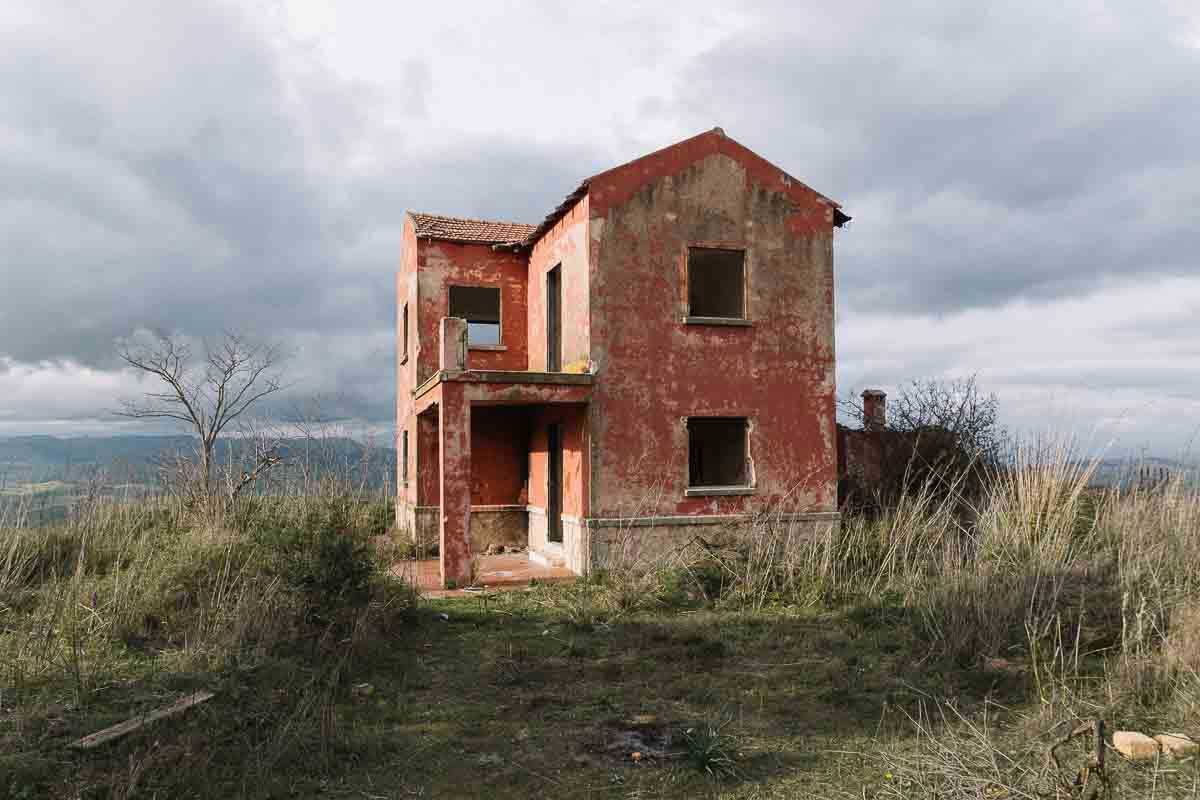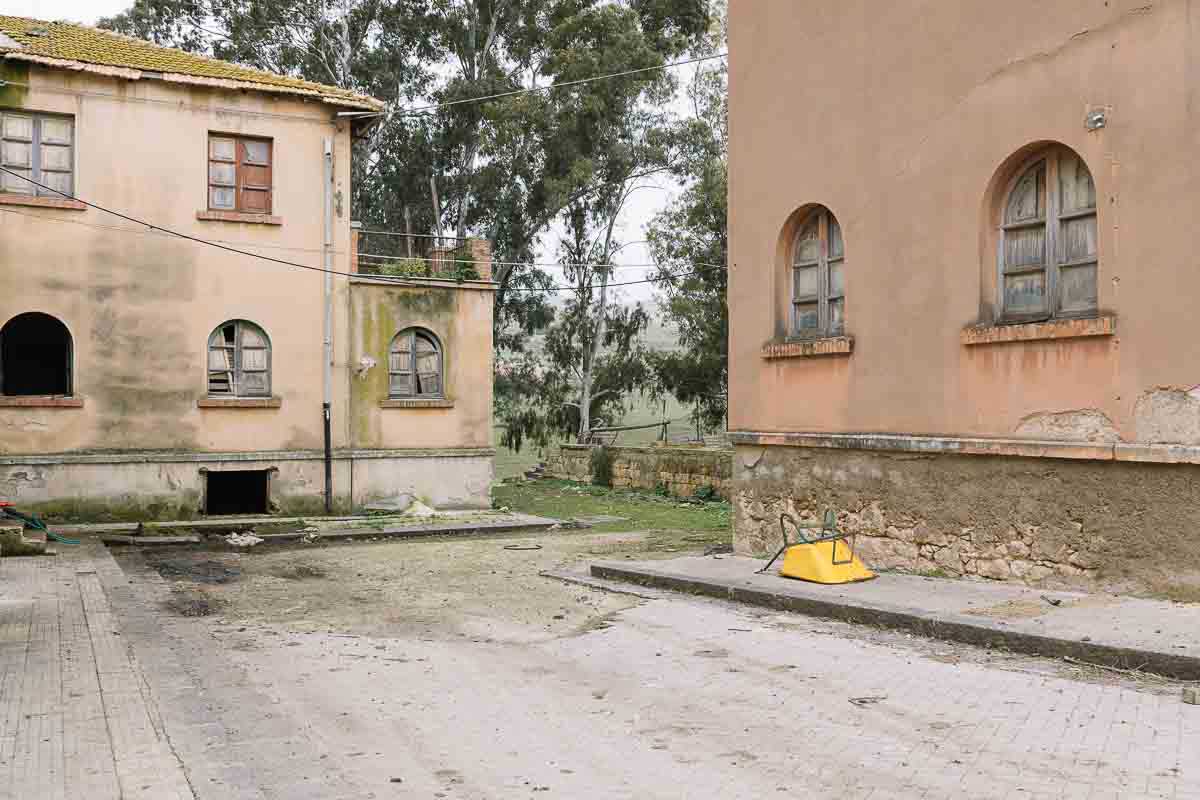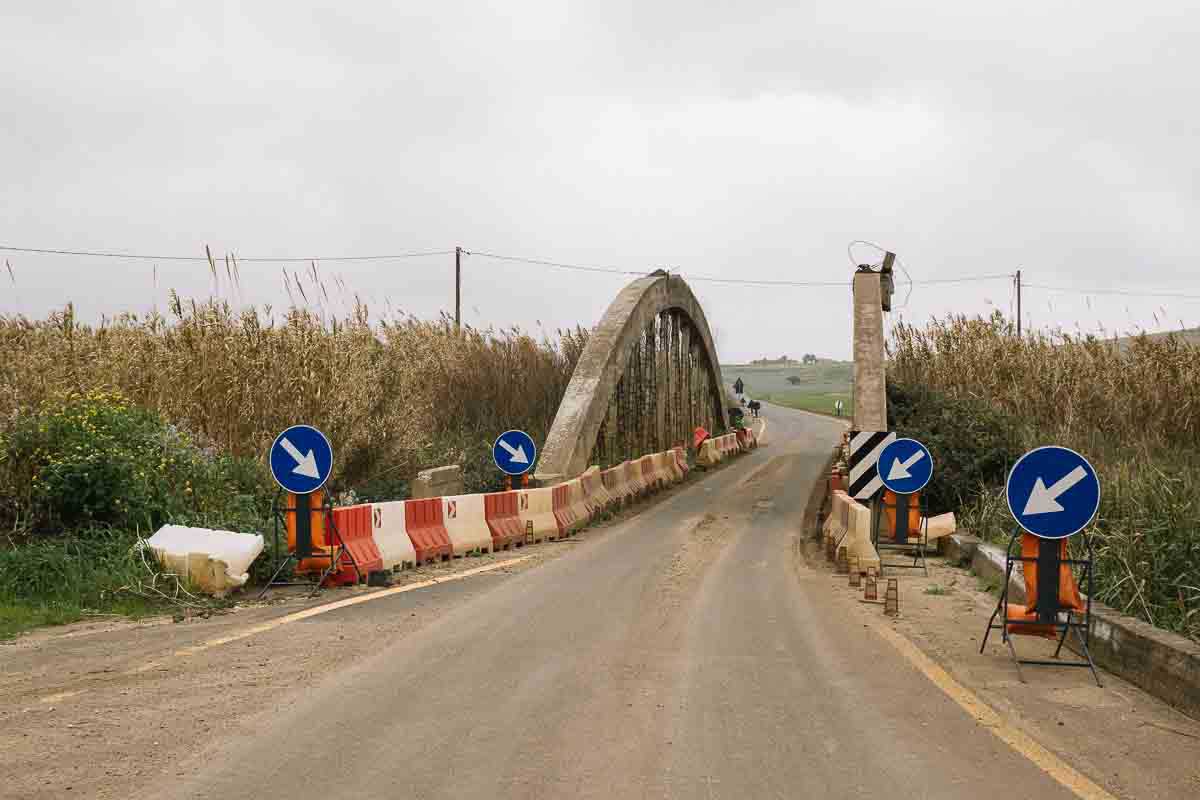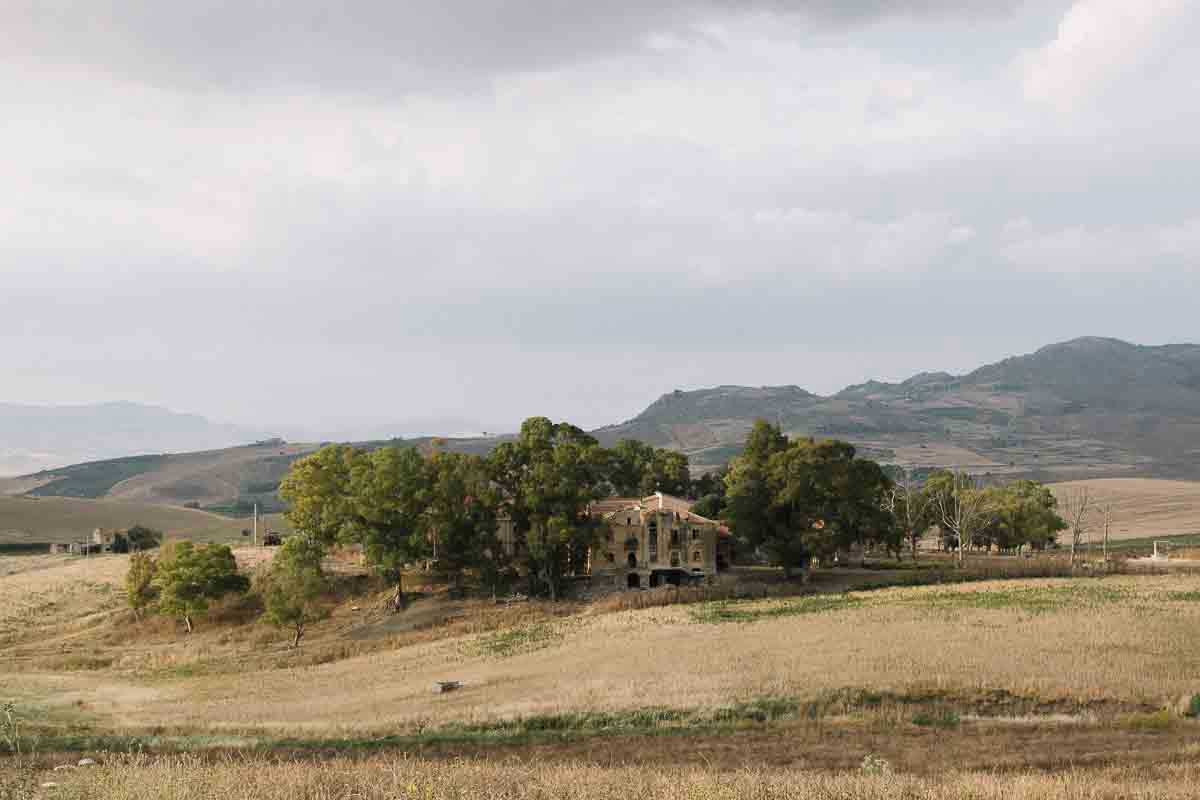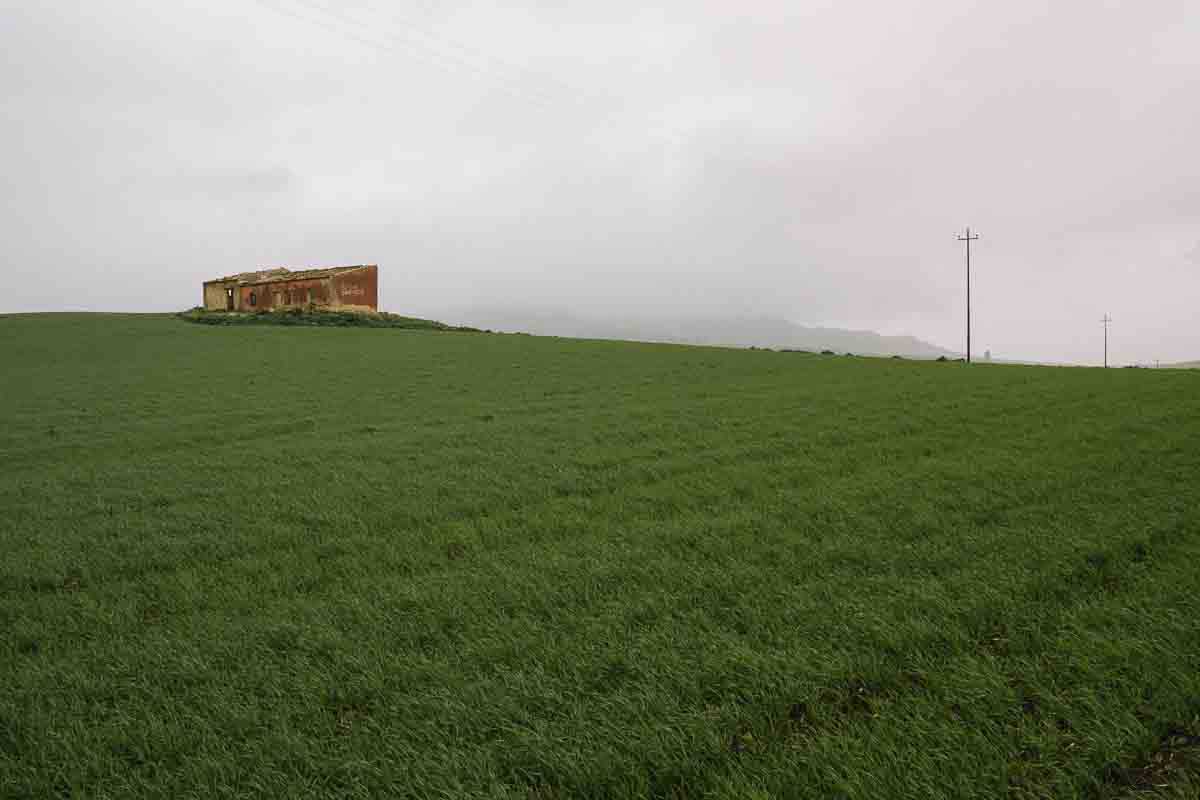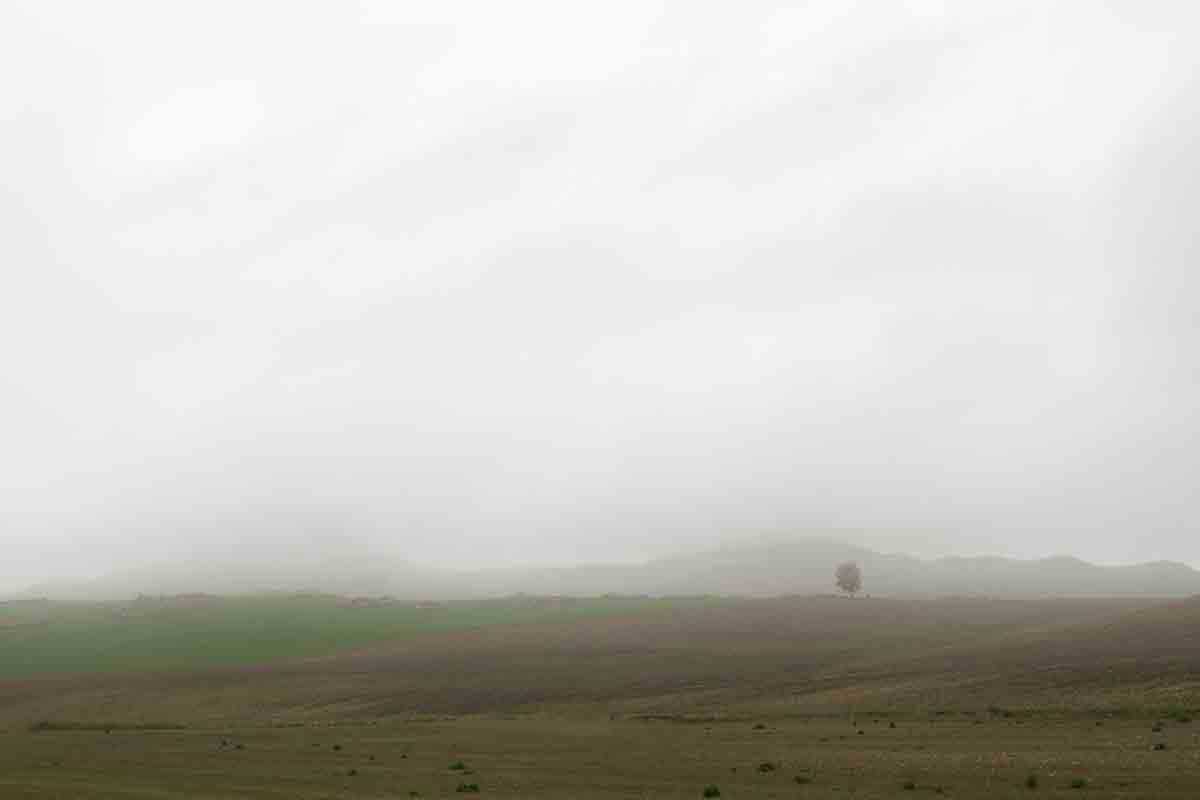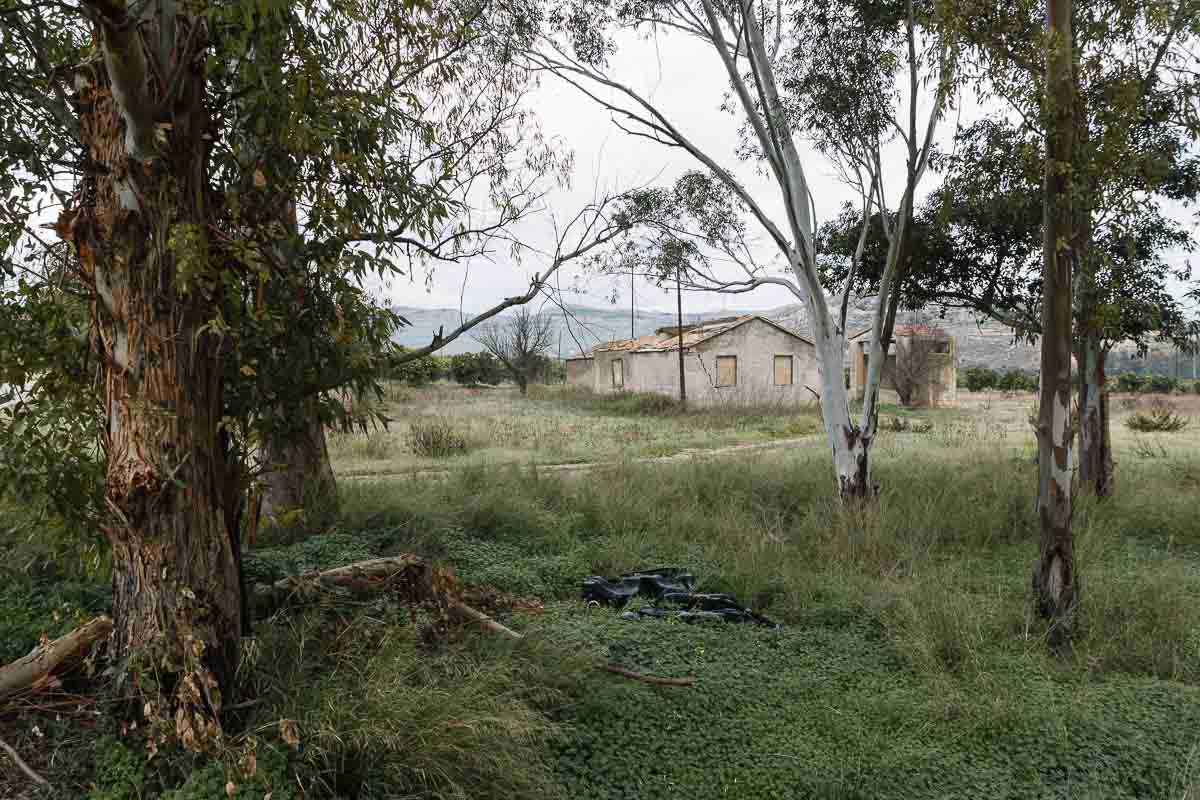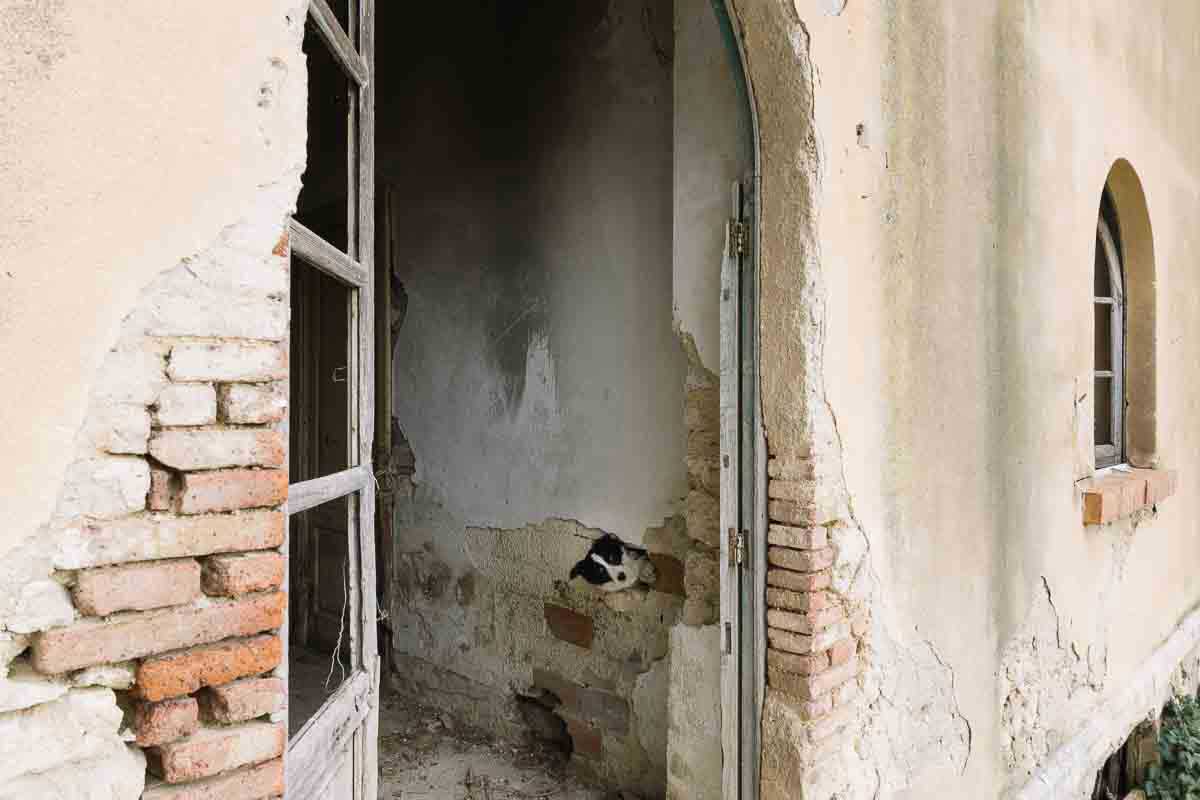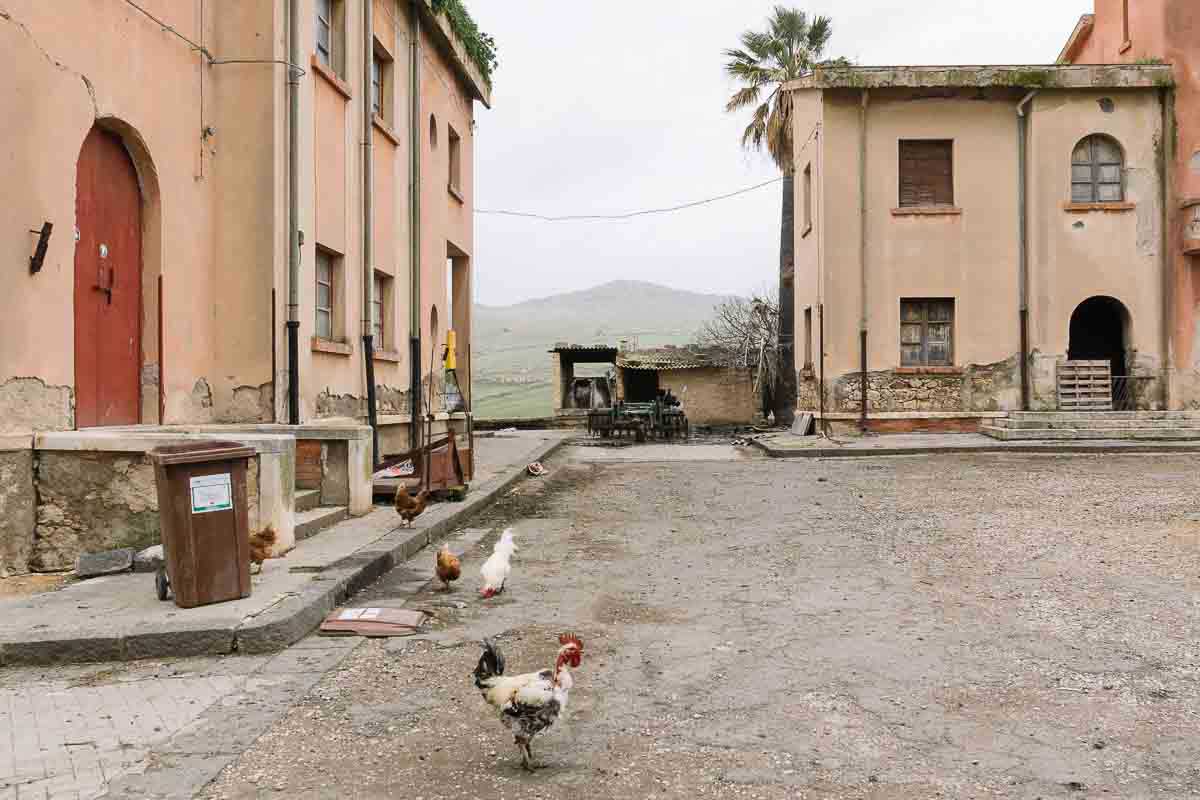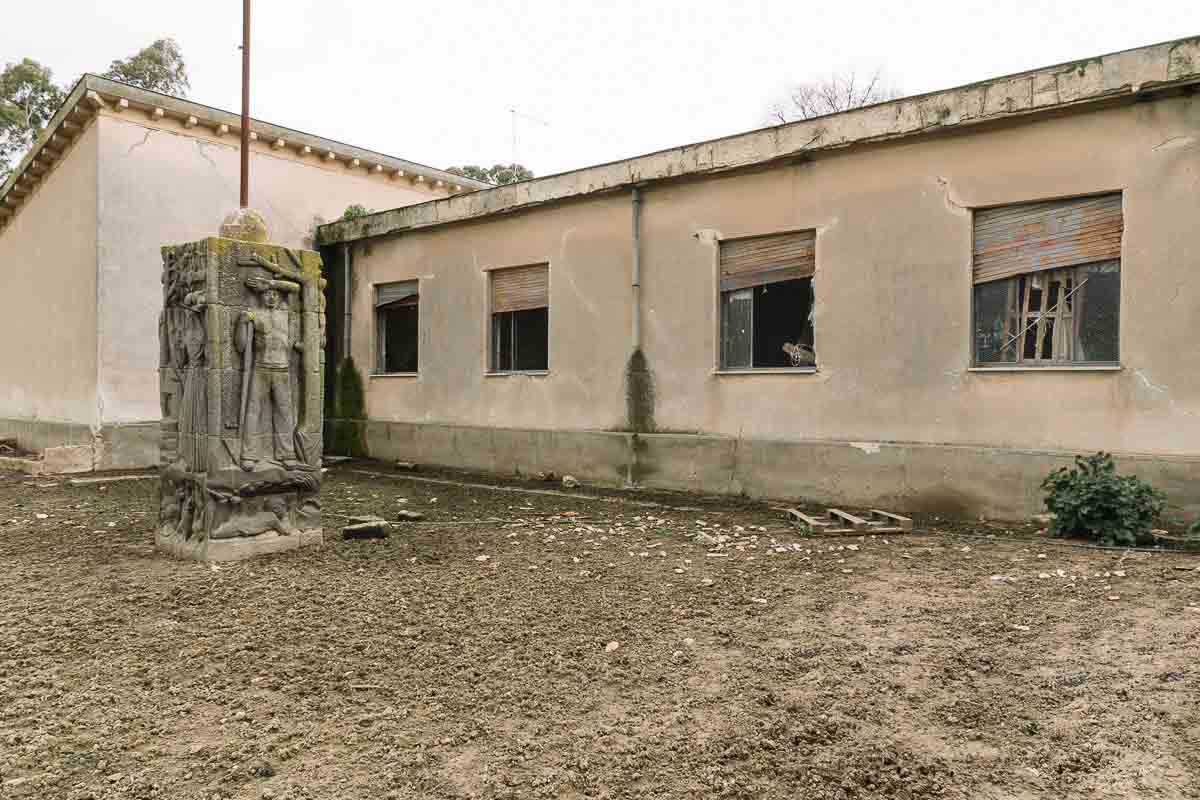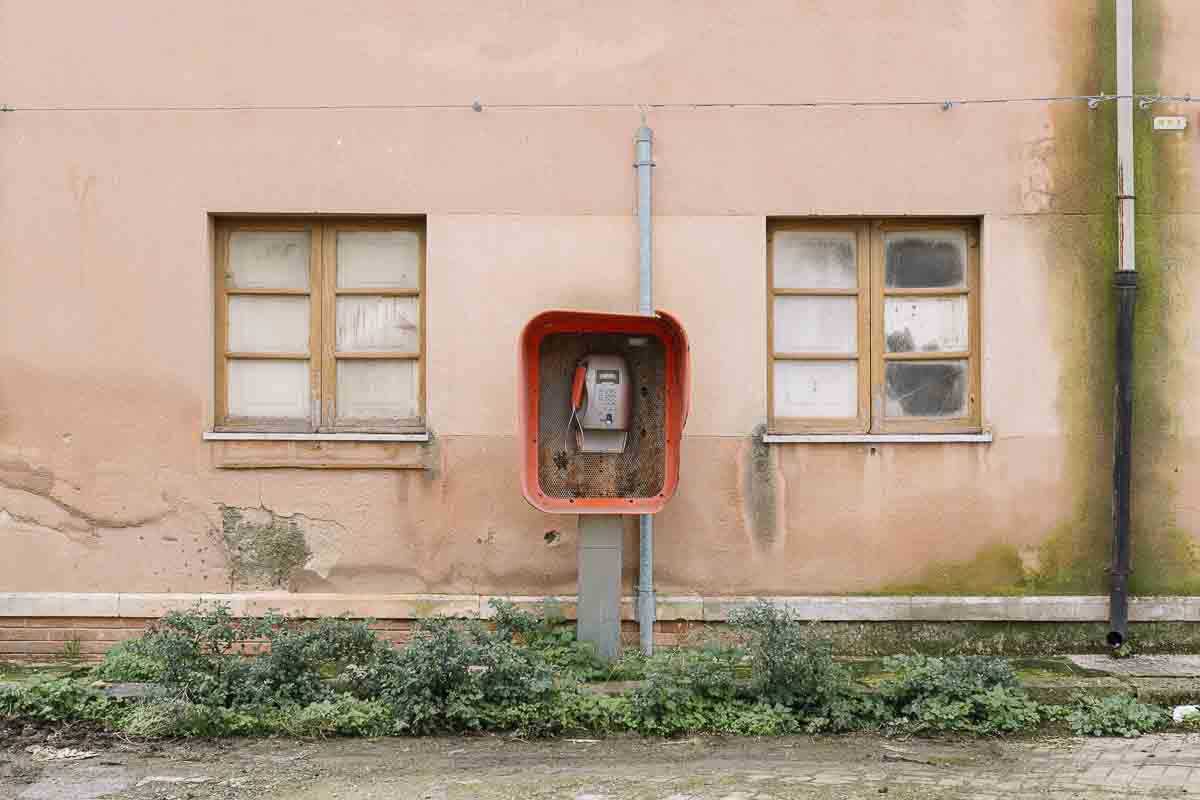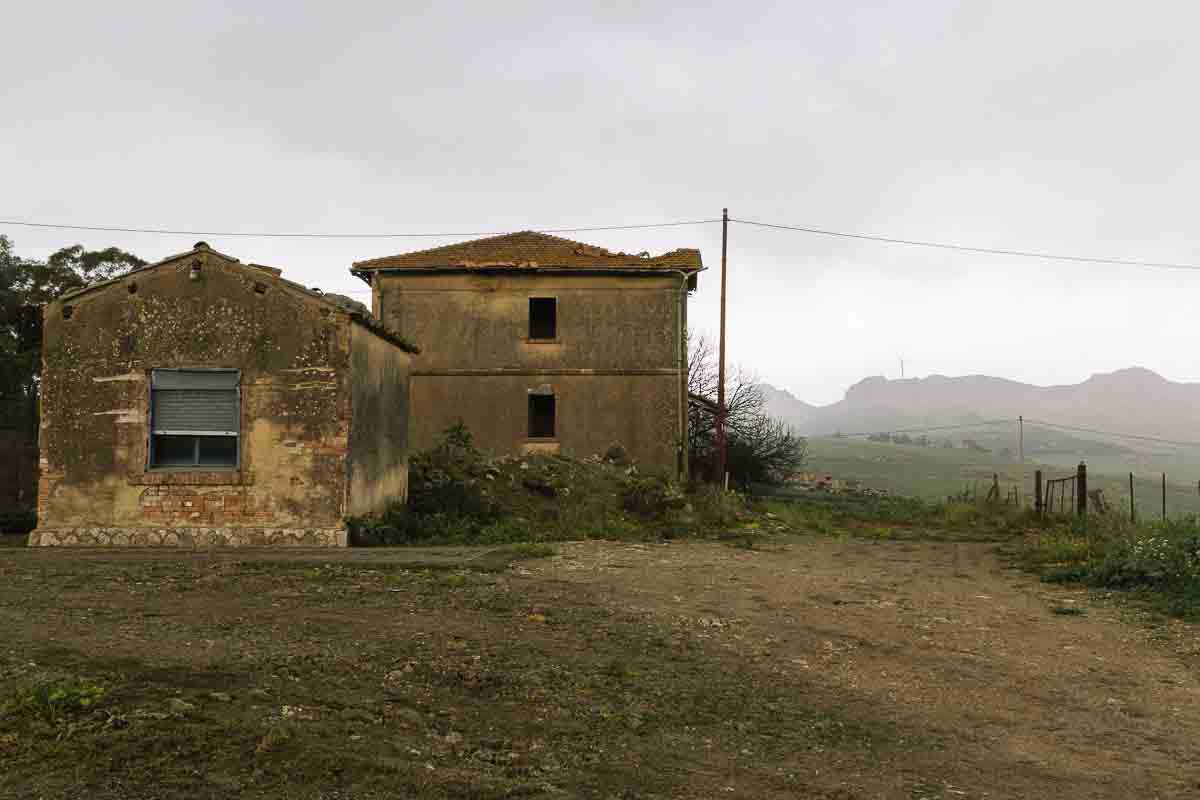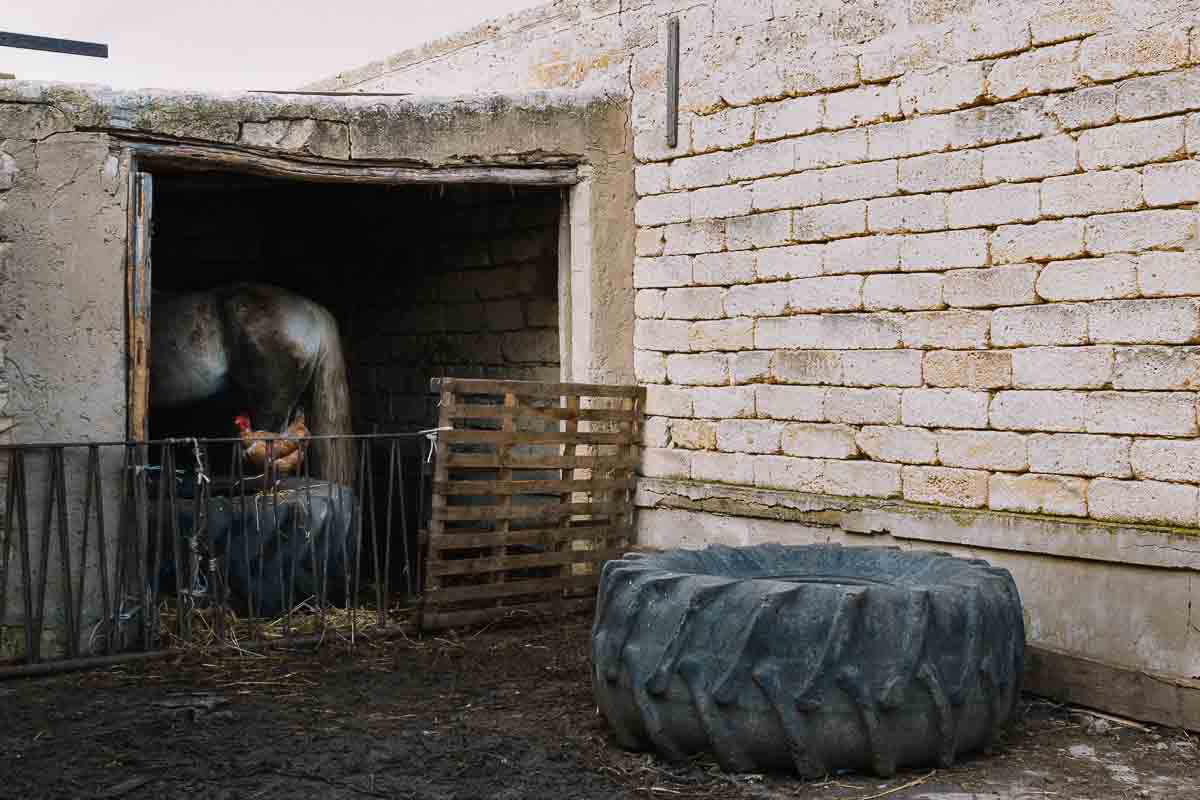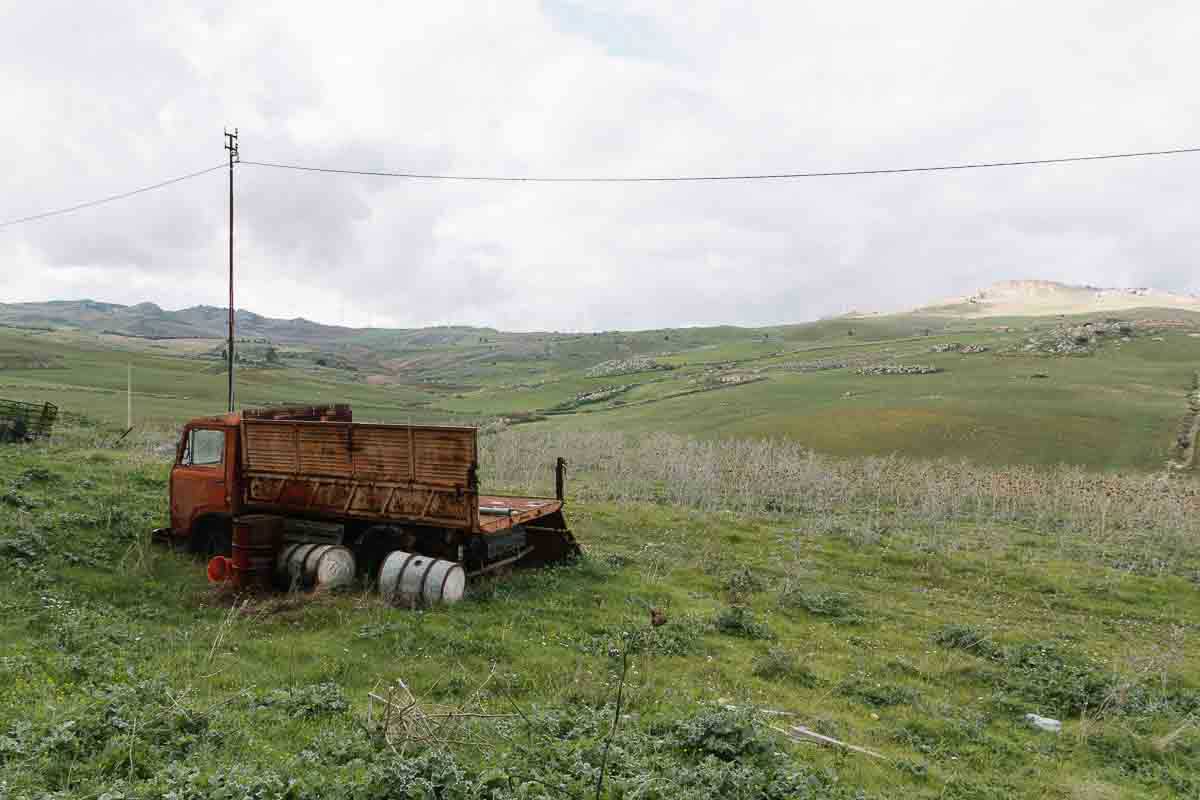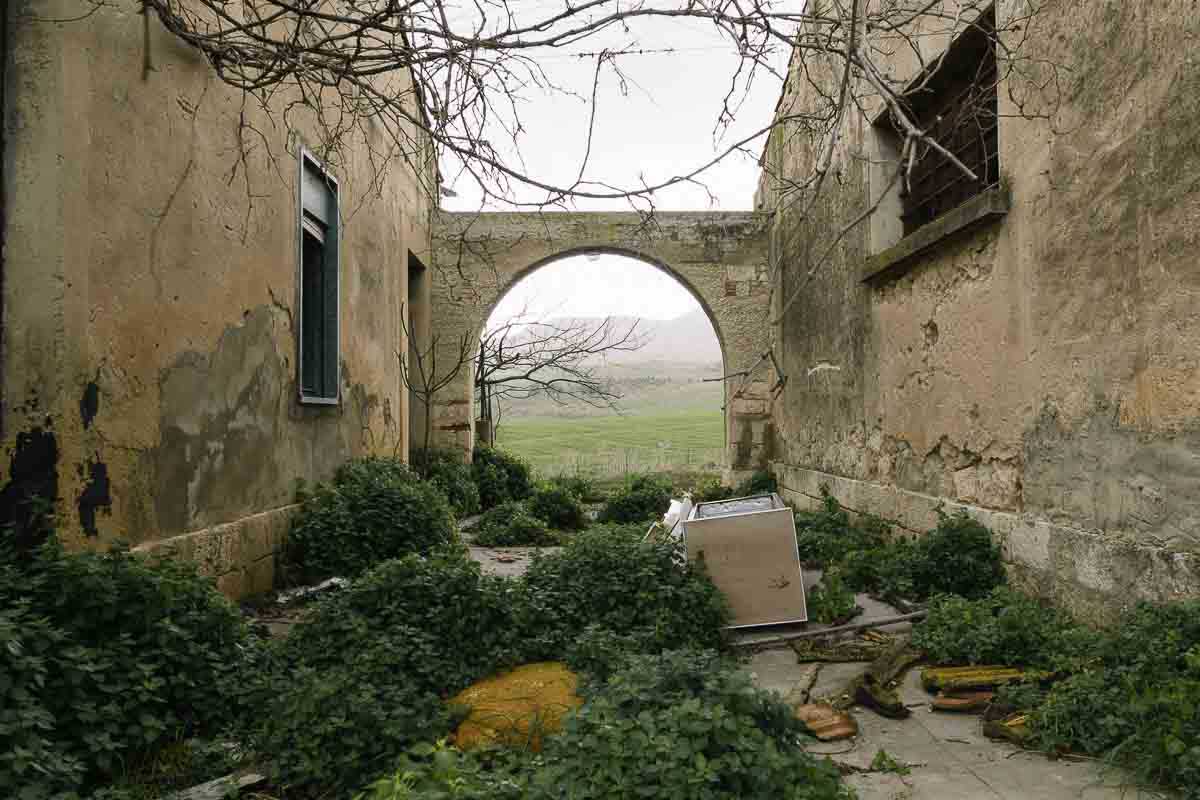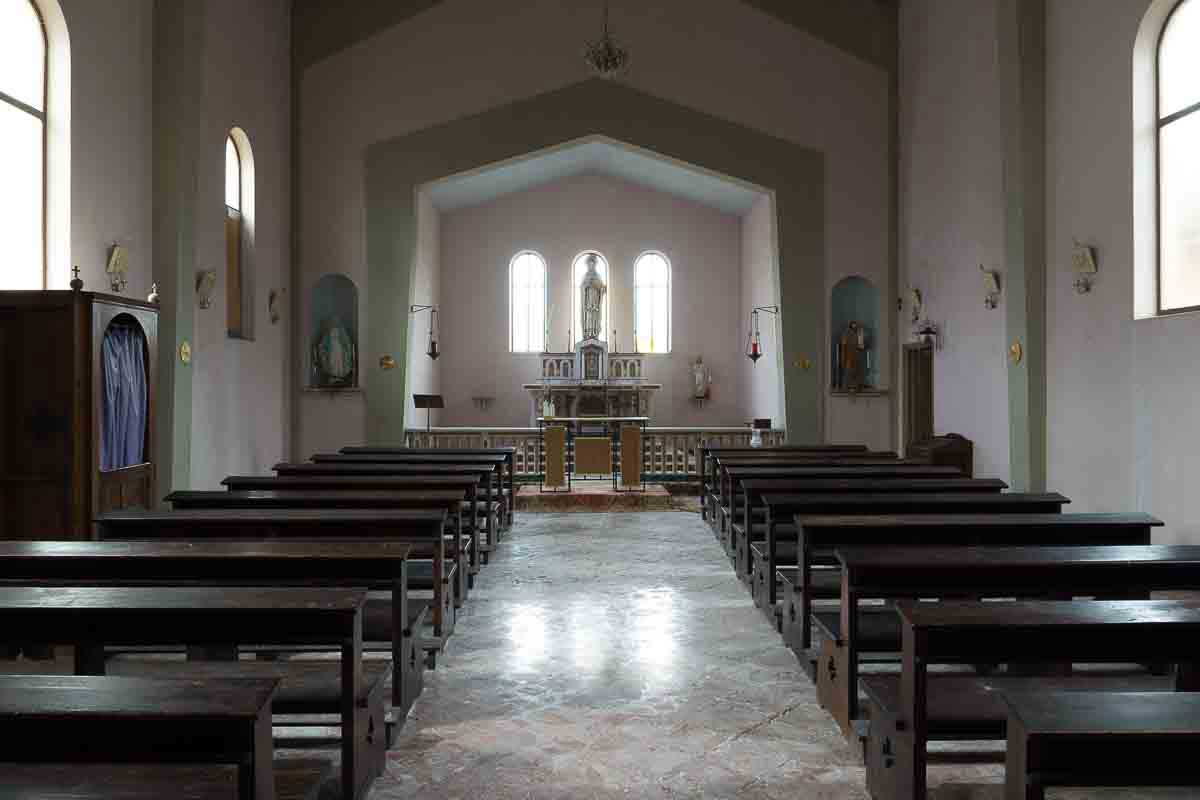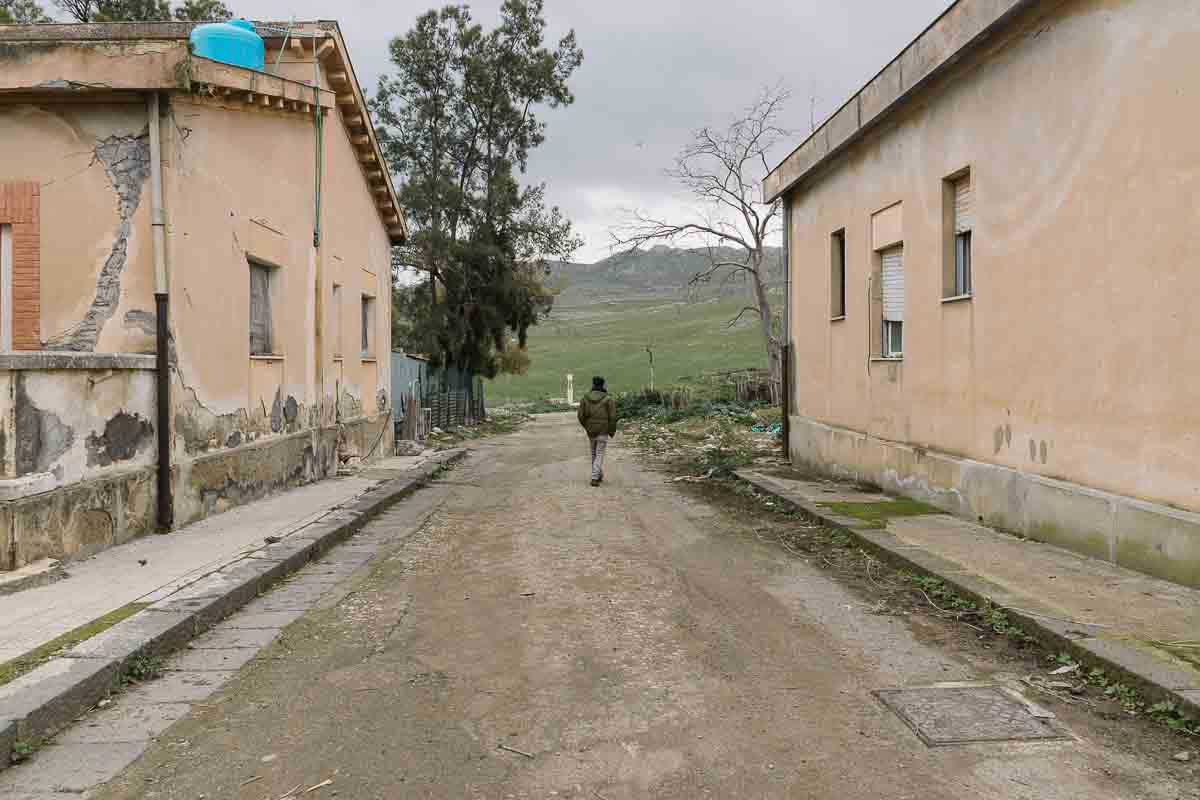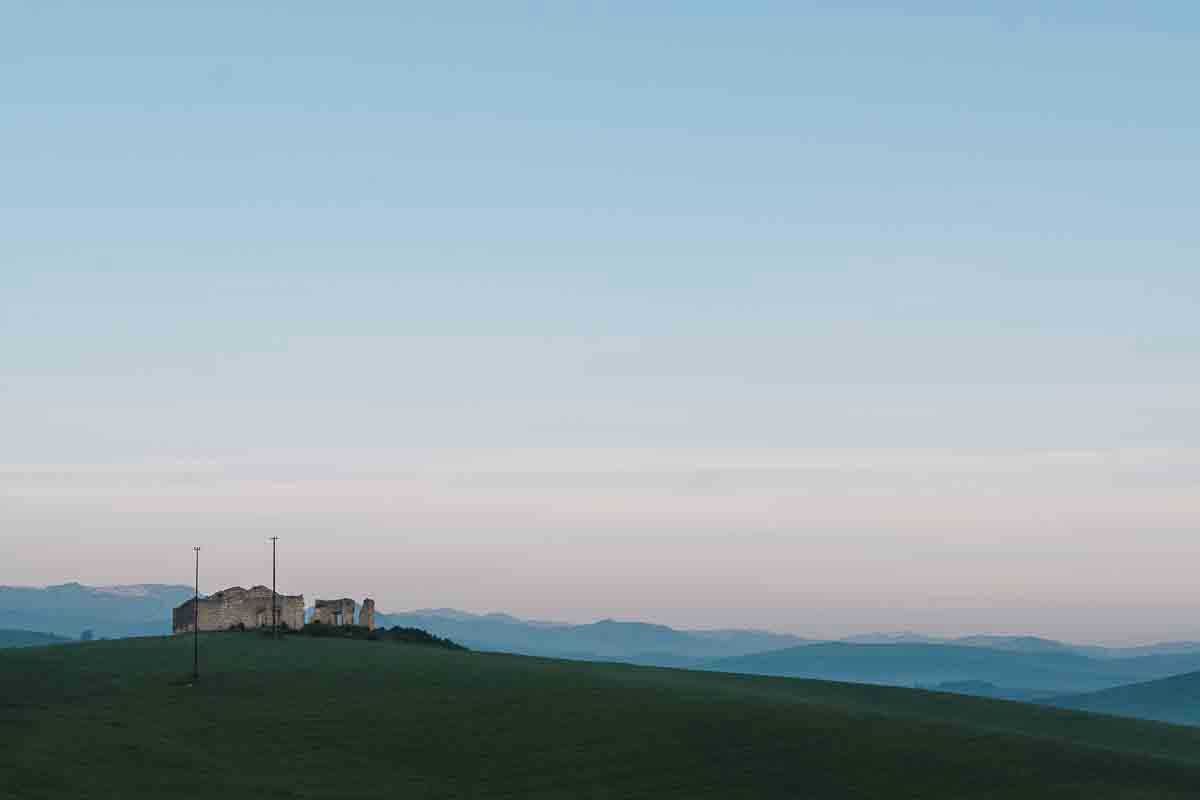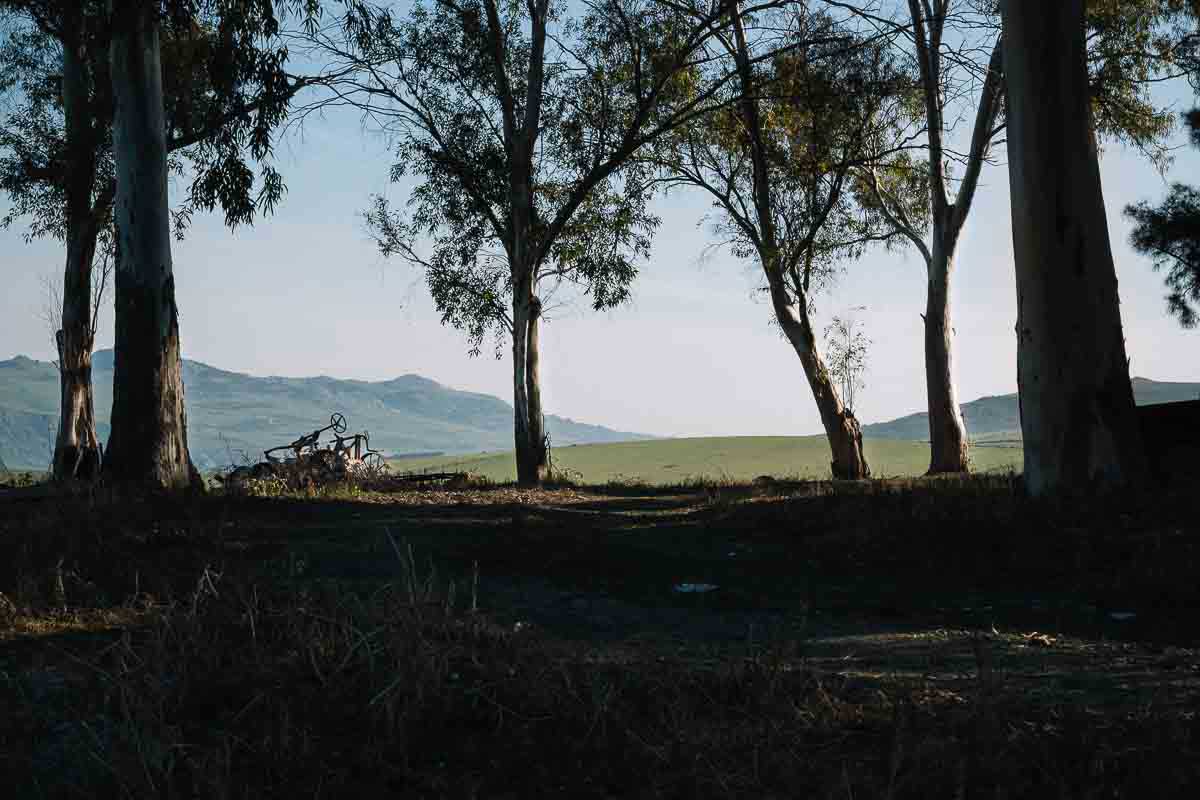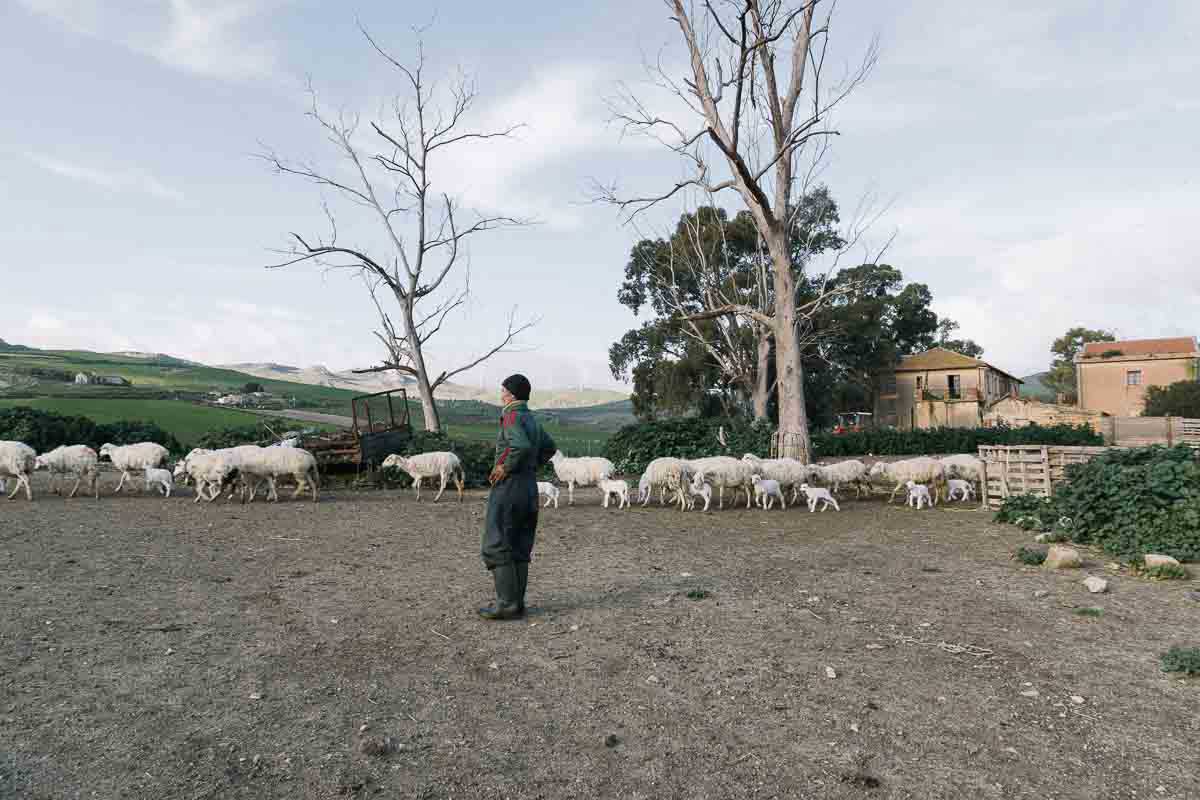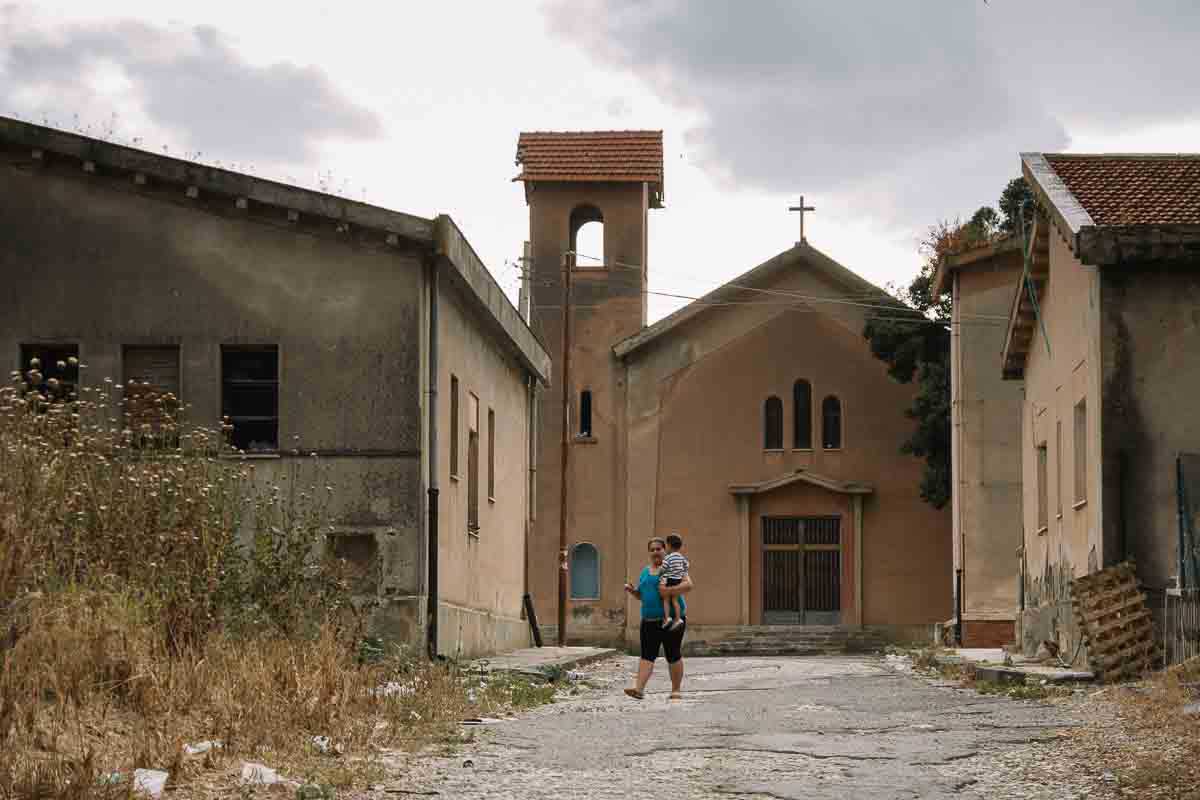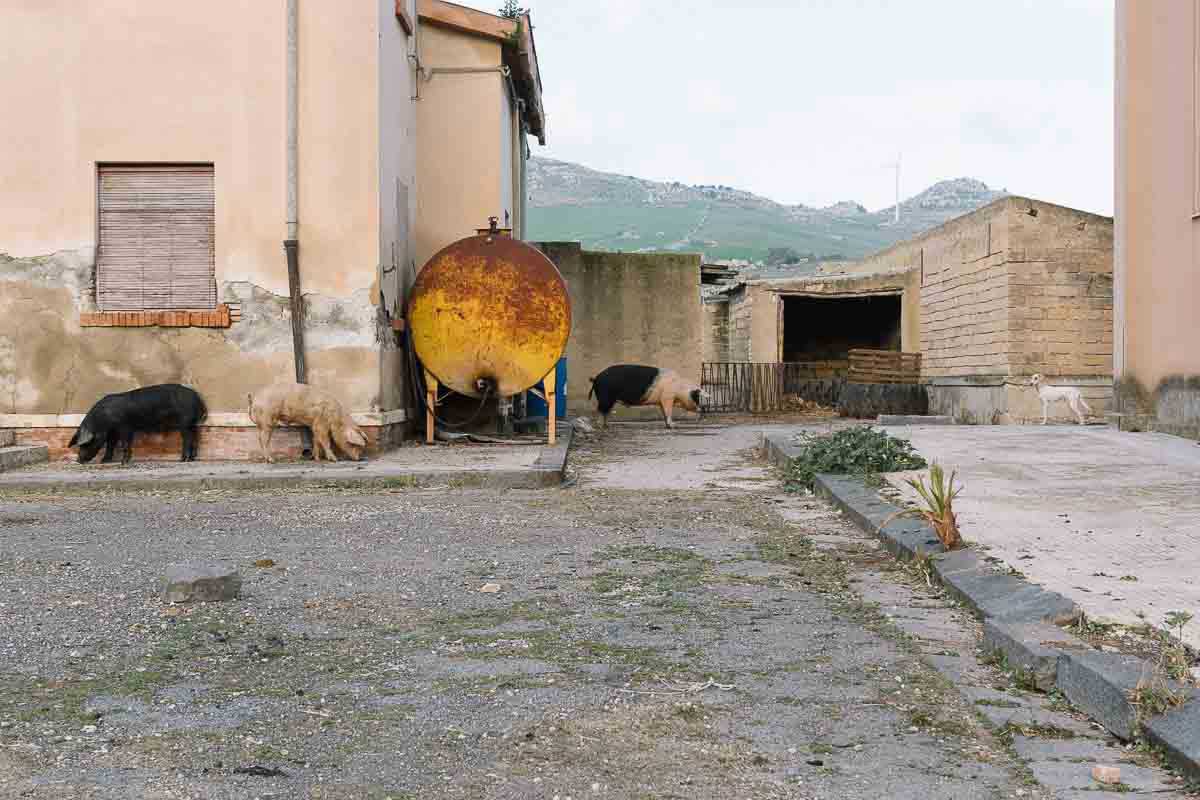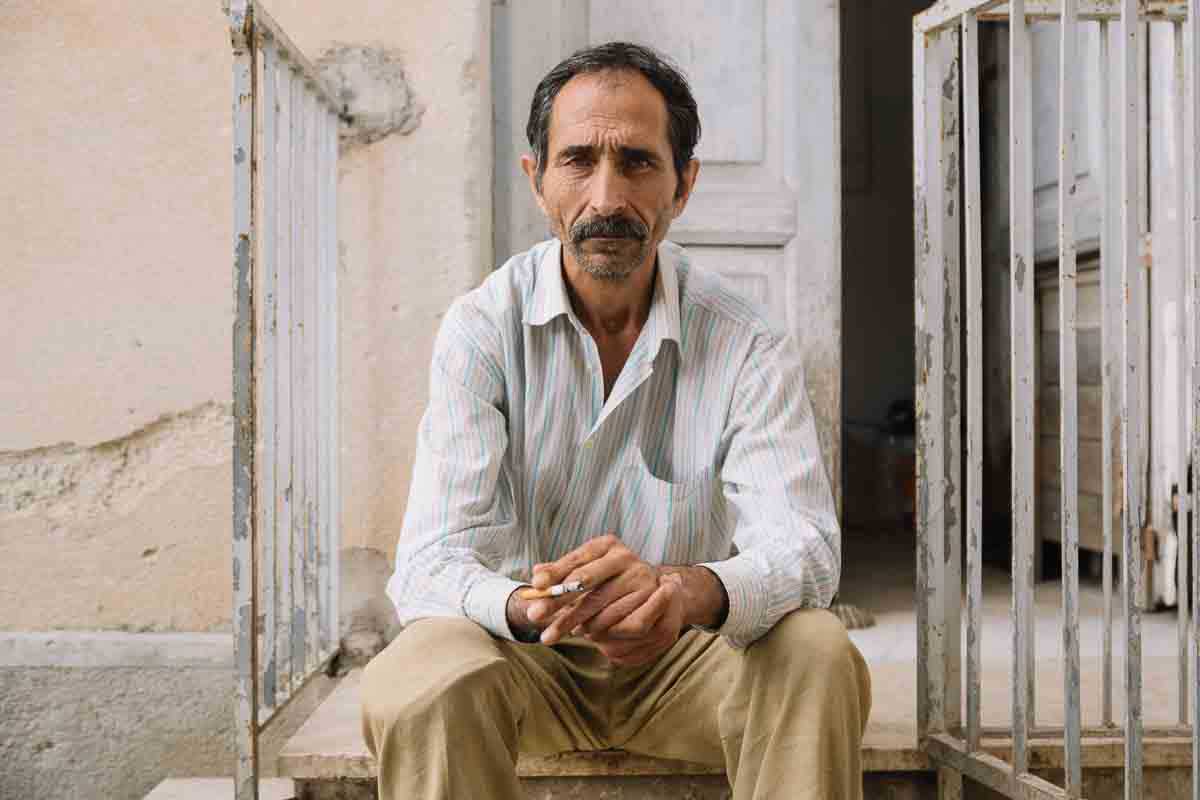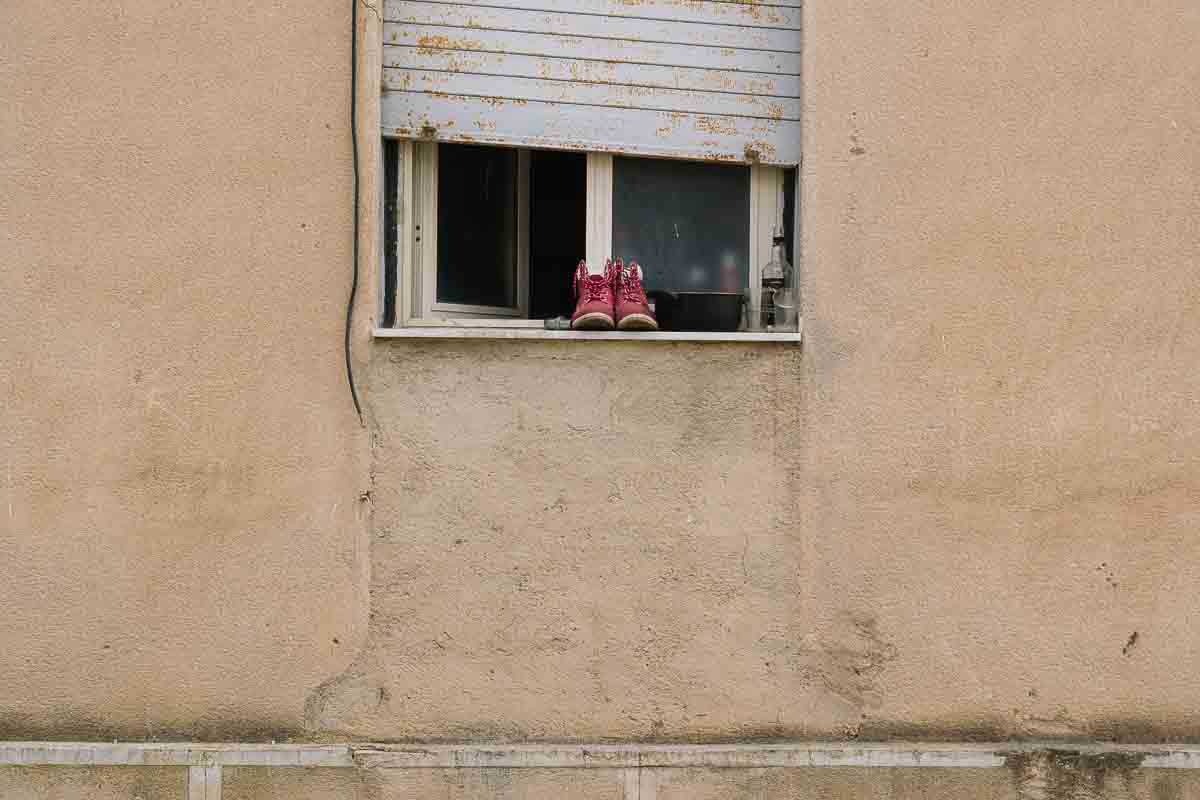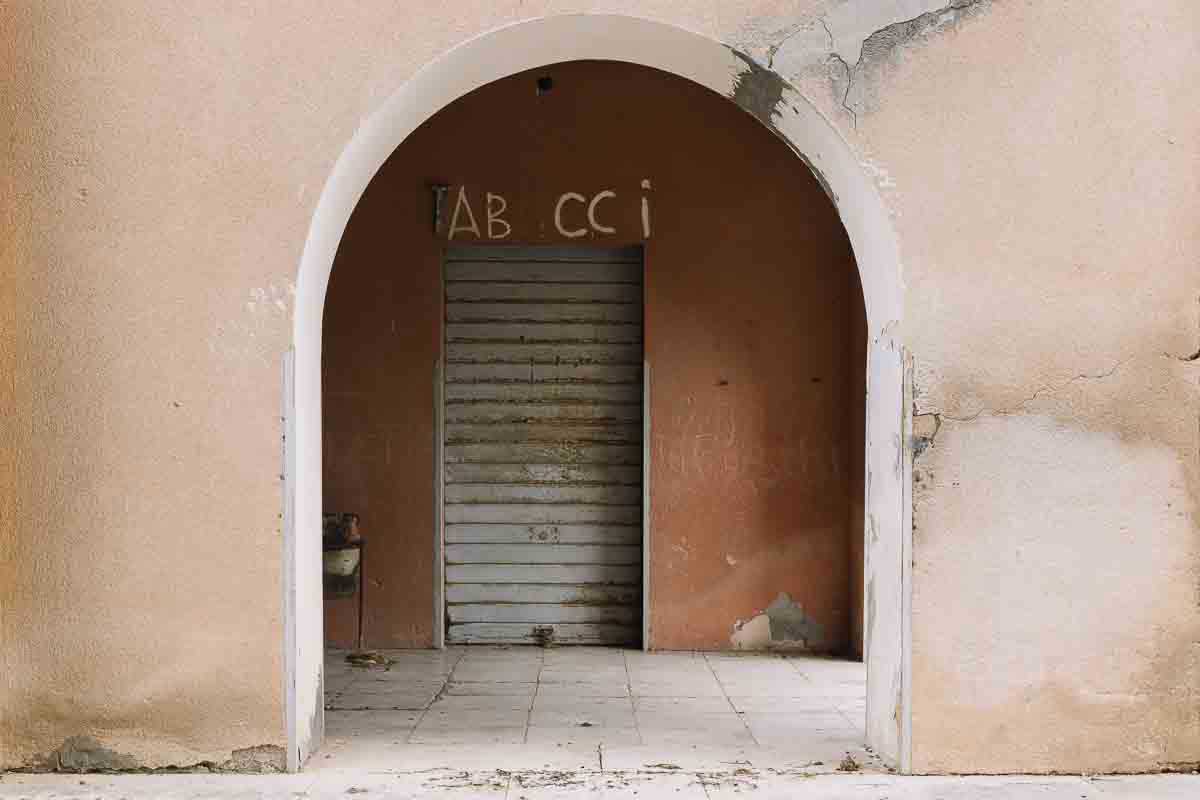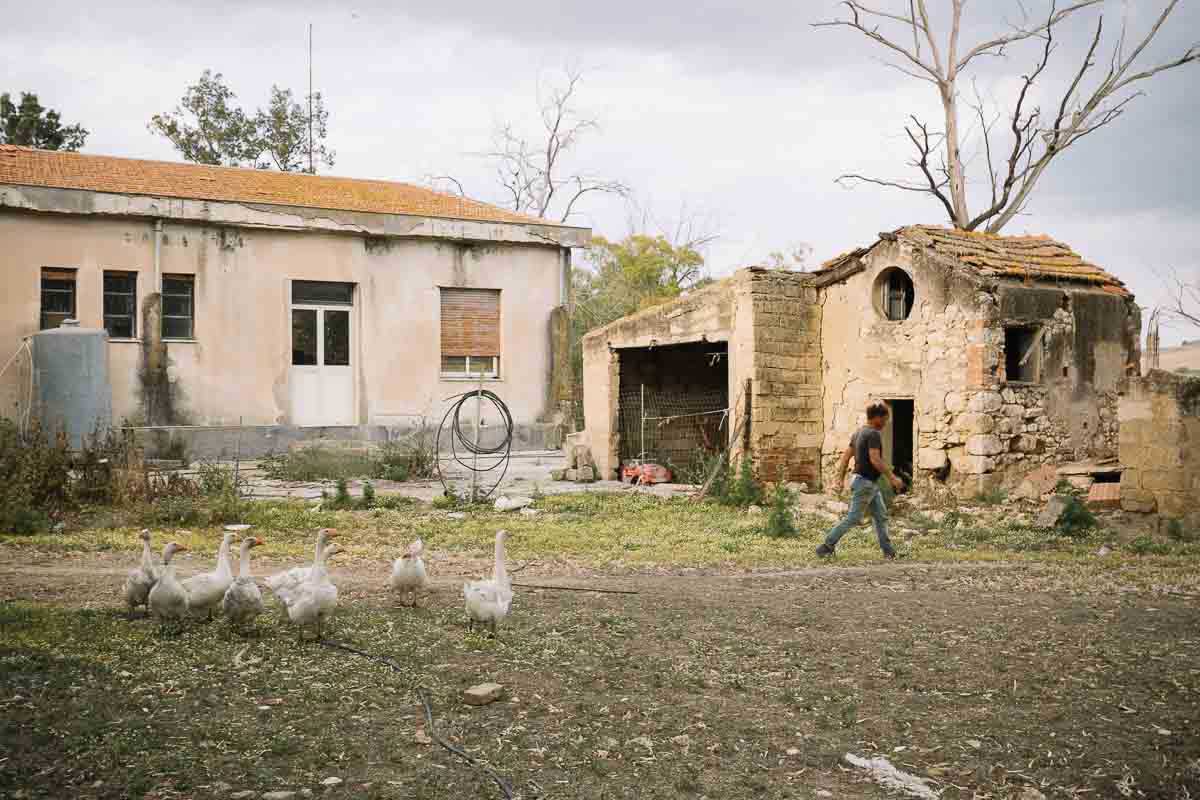Pietro Lupo village is a rural settlement, part of the municipality of Mineo, in the province of Catania.
Built in 1940 at the behest of the fascist regime at the hands of the colonization of the Sicilian Latifundia (ECLS), the village was almost completely abandoned, with the exception of a few residents that despite the enormous difficulties of survival have no intention of leaving their homes.
The future fate of this place a time prosperous, developed even to give birth to the Civic Center for a future town a few kilometres from Mineo, seems uncertain today than ever before. Water resources are not of the best electrical service is non-existent, removed almost completely by the supplier. Farm animals have taken possession of the few public buildings while many private homes are closed for some time. The only place still not “desecrated” is the small church which until a few years ago he celebrated Sunday mass for the few inhabitants. But it seems that even God and whoever have abandoned the village by foot for years now.

Several speculations have been made in the past, by the competent authorities, on how to retrain and redeploy the village, making it the center of a project that aims at enhancing the rural tourism. A place self-sufficient in terms of energy by installing technologies that have allowed to feed on itself through geothermal and photovoltaic systems.
Everything is bathed in a surreal atmosphere. You feel the weight of time spent, even if everything seems to be unchanged, left for what it was like.Although nestled in the beautiful hills of wheat of Sicily’s spooky what’s left of it. The remains of the ancient crumbling ruins seem to streak across the Plains as boats would do with sea waves disapearing inexorably drifting.
What is today the village Wolf?
In its essence of place seen as rural settlement, Village Wolf could be considered in the present state of things like a “utopia”, a space that doesn’t exist because in fact it is no longer possible to treat it as such, as only a skeleton, a skeleton of what it represented. However, it is undeniable that “utopia” we can only understand what really does not exist, on the other hand, stating that it is a “heterotopia” meaning “utopias located”, real places the result not of imagination I thought. A non-place par excellence, an localized well elsewhere. In fact, as Foucault claimed, the heterotopia par excellence is the ship, an abandoned place, at the same time, the infinity of the sea, as seems to be the fate of the village and its last inhabitants, shipwrecked in a place without place.

About Fabio Agatino
Fabio Agatino, been born in Catania in 1982, it immediately undertakes the university studies near the academy of Belle Arti of Catania after the diploma. For a long time impassioned of photo and of cinema, it undertakes his/her artistic search studying and putting on the field the notions the cinemas learned to the various university courses with different short films succeeding in competing to the Festival of Taormina in the section Taormina NICE for the good short Sicilian.After a few years it undertakes the studies of photo having a preference for the journalistic kind and of report frequenting various courses and seminars in the territory etneo.Has participated in various shows and collective photographic. [Official Website]
